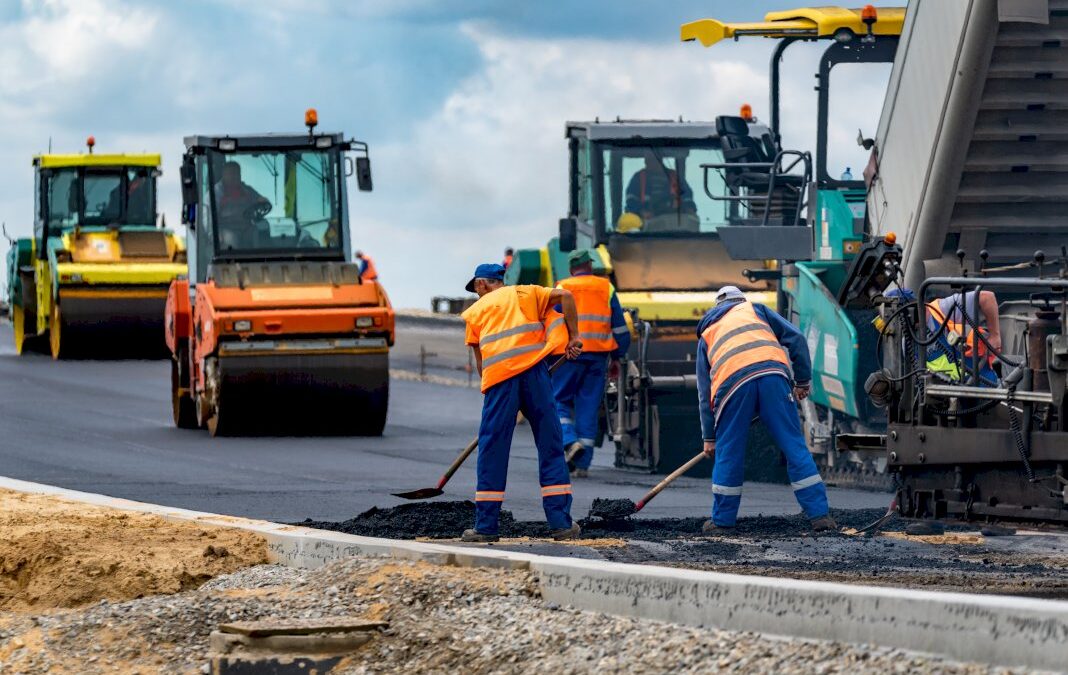- Smart highways are equipped with sensors, cameras, and other technological solutions.
- Innovative materials such as recycled plastics, rubber, and soybeans are emerging as viable alternatives to traditional materials.
- Modular construction refers to building highway components off-site and assembling them on-site.
- Automation and robotics improve accuracy, speed, and safety in highway construction.
- Eco-friendly materials and intelligent traffic management systems are some trends shaping highway construction’s future.
Decades of wear-and-tear, gridlock traffic, and environmental concerns have made upgrading highway infrastructure more critical. With the increasing need for better mobility, safety, and efficiency, highway construction continues to evolve in response to ever-changing demands.
This blog post will explore the latest trends and innovations in highway construction that are shaping the future of transportation. From smart highways to sustainable materials, it will delve into the exciting developments in the industry.
Smart Highways
The advent of smart highways transforms roadways into intelligent systems that communicate with vehicles, infrastructure, and travelers. Smart highways have sensors, cameras, and other technological solutions that enhance safety, traffic management, and environmental sustainability.
For example, in real-time, intelligent highways can detect and alert drivers of potential hazards, such as accidents, construction, or bad weather, and recommend alternate routes. Additionally, they can monitor traffic flow and adjust speed limits to maximize safety and efficiency. Smart highways can also harvest energy from solar panels or kinetic energy from moving vehicles to power lighting, signs, or charging stations.
Innovative Materials and Equipment

The search for more durable, sustainable, and cost-effective materials is driving innovation in highway construction. Traditional materials such as concrete and asphalt are still commonly used, but newer alternatives are emerging that offer better performance and environmental benefits.
Modern equipment is also impacting the speed and quality of highway construction. The Volvo roller compactor is one such machine that has consistently proven its worth in the construction industry. With its powerful engine and advanced technology, this compactor can easily compress even the toughest of materials, ensuring uniform density on the surface and sub-surface layers of the highway.
Modular Construction
Modular construction refers to assembling highway components on-site rather than constructing them on-site from scratch. This method can save time, money, and resources while increasing quality and safety.
One example of modular construction is using precast concrete elements, such as bridge decks, trenches, or sound barriers. These elements are produced in a factory setting and can be transported to the site and installed quickly and efficiently. Another example is the deployment of modular bridge systems that can be assembled and disassembled rapidly, allowing for temporary or emergency solutions.
Automation and Robotics
Automation and robotics have the potential to revolutionize highway construction by improving accuracy, speed, and safety. Automated and robotic systems can perform tasks that are physically challenging, dangerous, or time-consuming for human workers, reducing the risk of injuries and improving productivity.
For example, autonomous construction equipment such as excavators, pavers, or bulldozers can operate without a human driver, following preprogrammed instructions and avoiding obstacles. Drones can also survey and monitor construction sites, providing real-time data and insights. Robotic systems such as 3D printers can fabricate complex structures or parts on-site.
What to Expect
How people build and maintain roads today is entirely different from two decades ago. With the advancements in technology and materials, you can expect even more changes in the future, such as:
Eco-Friendly Materials

One of the biggest trends in highway construction is using eco-friendly materials. Traditional materials like asphalt and cement are notorious for their carbon footprint and environmental impact. However, innovations like recycled plastics, rubber, and soybeans are emerging as viable alternatives.
Self-Repairing Roads
Another trend is self-repairing roads, which use sensors and other technologies to detect and repair damage caused by weather or traffic conditions. This could save time and money and improve drivers’ safety.
Autonomous Vehicles
The rise of autonomous vehicles is also changing the landscape of highway construction. Autonomous vehicles require different infrastructure than traditional cars, such as dedicated lanes and sensors for navigation and communication. Specialized highways with these features are being designed to accommodate these vehicles in the future.
Intelligent Traffic Management Systems
Intelligent traffic management systems can be used to reduce congestion, improve safety, and optimize route planning. These systems utilize sensors, cameras, and AI technology to monitor traffic flow in real time and provide valuable insights that can help reduce travel times and increase efficiency.
The Bottom Line
In conclusion, the future of highway construction looks promising, with numerous trends and innovations emerging to meet modern transportation challenges. Smart highways, innovative materials, modular construction, automation, and robotics are just a few examples of the exciting developments transforming the industry.

Recent Comments